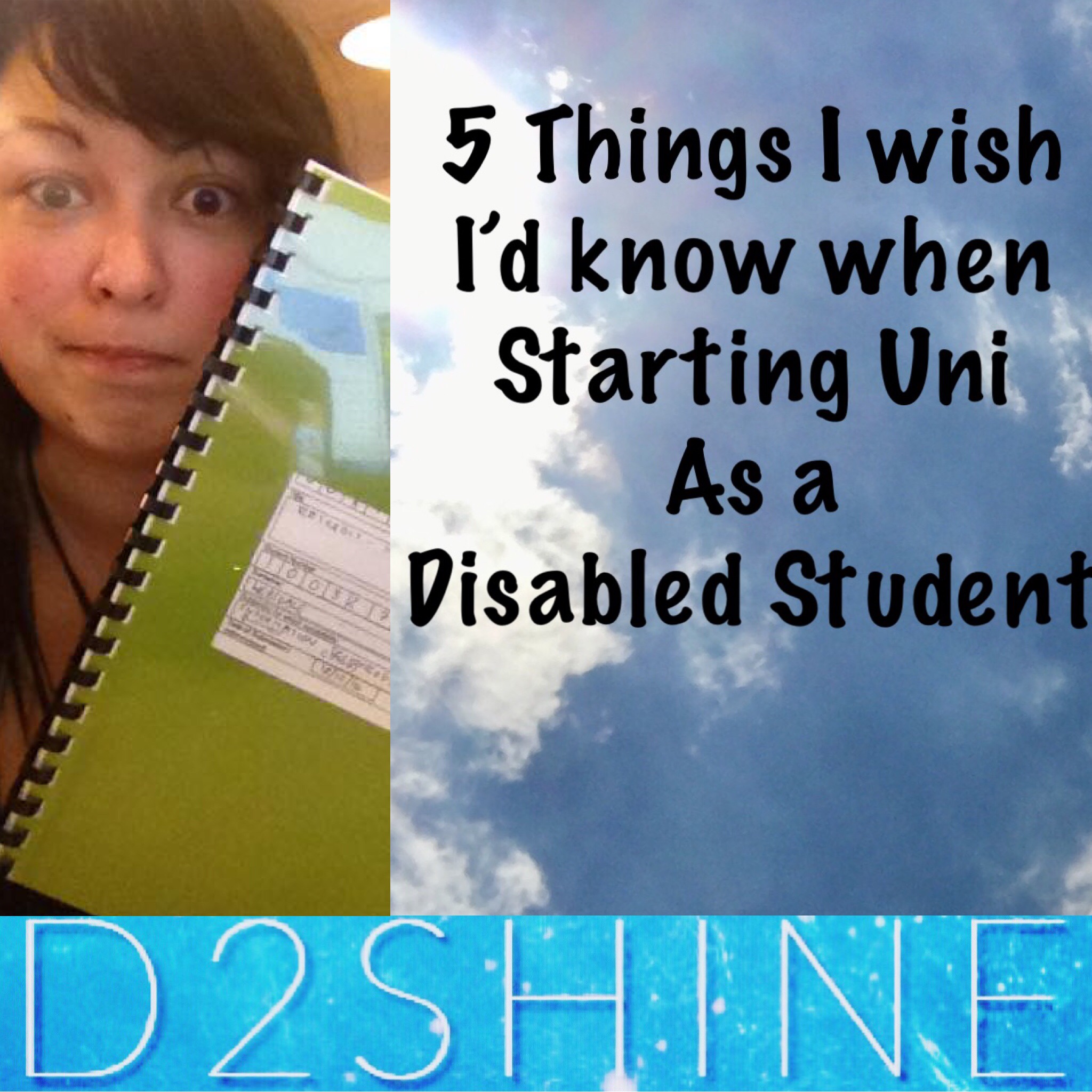For anyone, university is a hectic time of deadlines, social activities and hoping like heck what you’re doing is going to pay off with a job once you graduate. When, on top of all the normal fun of time and money management you’re dealing with disabilities, it’s another level of madness! I went to university suffering with seizures and chronic fatigue and completely unaware of any support. Here are 5 Things I wish i’d known when starting Uni as a Disabled Student.
5.Don’t be Afraid to tell your Module Leader

I was really scared about sharing my health situation with my module leaders for fear of judgement or them not taking me seriously. Chances are, you’re going to miss some lectures due to your health and it’s much better than your module leader is aware so they can help.
If your module leader is aware of your health then they’ll likely offer additional materials for your self study, or may offer a form of catch up class. It’s also helpful so they don’t think you’re just skiving class. I know some of my classes deducted a percentage per lesson for each week you weren’t present so I needed an exception for that! You’ll likely need a medical certificate or doctor’s note to back you up so make sure you have that.
I had several seizures in my lessons whilst at uni (or on the floor outside-owch) and my module leader being aware certainly helped stop people panicking!
4.It’s Okay to change Degree
This might sound an odd tip but for example if you have a condition which us impacting you managing to attend class, some subjects are harder to keep up with. It may also be you need to switch to part time study- there’s no shame in that!
Personally, I originally studied Japanese and Film Studies but due to my seizures was missing at least one lesson a week. The problem for me was when I missed the language speaking seminars there was simply no way to catch up! I needed a course which offered more online learning and I could catch up more easily by myself- so I switched to an IT course which worked out much better for me!
3.Find out what help the Government can offer you

This is a bit dependent on what country you’re studying in but for me who studied in the UK, I was eligible for Disabled Student Allowance. DSA works by you initially applying online and providing medical proof of the conditions and then attending an assessment where you discuss what would help you at university.
Personally, I was given a disability mentor who was truly invaluable to my university experience, money towards a laptop, reimbursements for printer ink and some of my textbooks were covered. The type of disability you have affects what’s offered to you, with physical disability aids also being available. DSA also wrote to my university to confirm my conditions with the student support team so the uni could help me directly. It’s definitely worth pursuing!
2.Manage your time so you don’t Burn out

This is true for anyone at uni but especially when you’ve got health issues and likely lack in energy or ‘spoons’. When you first go to university you’ll be surrounded by social things, societies, possibly a side job and a load of actual uni work of course and it’s easy to get overwhelmed. Try to think what is actually feasible for you to commit to long term given you need some downtime.
I started off committing to a load of societies and got so worn out I was having more seizures. My main reasons for being at uni were to actually get my degree and learn to support myself so I had to learn to balance my time more so I didn’t just end up in A&E all the time!
1.Contact your university’s student support
The most vital tip of all! Each university will have its own student support department. These guys are literally there to help you. From helping arrange counselling to coursework extensions, it’s so worth explaining your situation to Student Support. Don’t struggle on solo!
I wasn’t aware of student support for my first year of uni and had an awful time, missing classes, struggling with my seizures and fearing I was failing everything. Once I’d seen student support and had the external DSA assessment mentioned above, Student Support were able to massively help. They arranged for me to have unconditional coursework extensions for when I was ill, ongoing counselling, a separate room for taking my exams and sent out an email to my module leaders each semester informing them of my situation.
I genuinely wouldn’t have gotten my 2.1 without the help of my university’s Student Support, don’t be scared or ashamed- you deserve the help!
I hope these tips helped and to anyone disabled wondering if University is possible for them, please know it really is. Whether in person or through distance learning, there are so ways to make it work and still have a brilliant time learning!
Until next time,
Laters, Ruthy xo
Originally published at d2shine.co.uk


